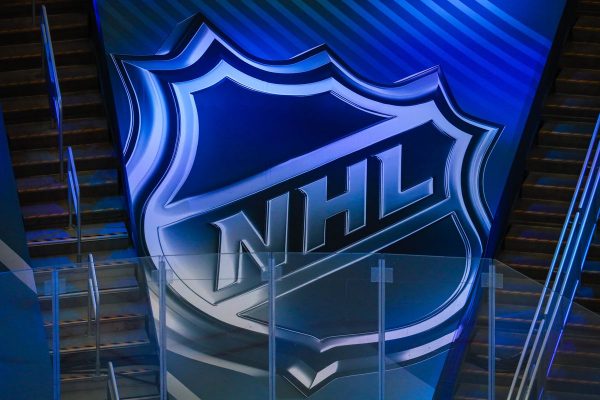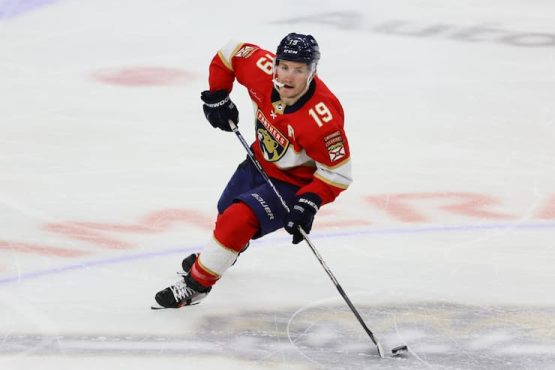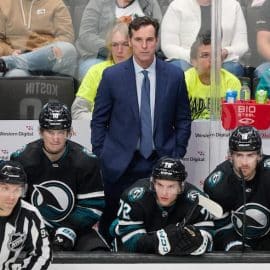This should have been the time of year that the NHL and its fans would have been wondering what the temperature and the weather conditions in Minneapolis, MN would be on Friday afternoon. They should have been getting ready to sit in front of their televisions or be one of the folks sitting out at Target Field for the 2021 Winter Classic watching the Minnesota Wild take on the St. Louis Blues.
This is just one of the many “should haves” that fell by the wayside thanks to COVID-19. So rather than prepare for a Winter Classic, the league and fans are preparing for an abbreviated 56-game season to begin on January 13th, redesigned into something that most have never seen before.
Burst Bubble
Unlike the 2020 Stanley Cup Playoffs, the regular season will not be played within bubbles. Teams will be able to play in their home arenas, so long as local health regulations allow (notably, the San Jose Sharks will be in Scottsdale, Arizona for the foreseeable future due to restrictions in Santa Clara County, California). They will be allowed to have fans, with capacity based again on local health regulations. The Tampa Bay Lightning, Florida Panthers and Dallas Stars have already announced that they plan to have some fans in attendance.
Being in a “bubble-less” environment puts further onus on players to follow COVID-19 protocols established by the League. On the road, players will have their own hotel rooms and will be forbidden to venture out into the cities to do things like dine or shop. Should a player test positive, among the requirements to return to play they will need to be cleared by both a team physician and a cardiologist. Also gone is the nondescript “unfit to play” injury status that was widely panned during the playoffs.. If a player tests positive, it will be announced. Seeing what MLB and the NFL have gone through with players testing positive, it’s unrealistic to expect the NHL to not face similar hiccups along the way.
New-Look Divisions
With the U.S.-Canadian border essentially closed and Canada’s 14-day quarantine policy in place, an all-Canadian (“North”) division was put into place. The Atlantic Division is essentially dissolved for the season, with the Boston Bruins and Buffalo Sabres joining six of the Metro Division teams to form the new ‘East” Division. The Panthers, Lightning, Detroit Red Wings, Columbus Blue Jackets and Carolina Hurricanes, along with the Chicago Blackhawks, Stars and Nashville Predators form the new-look Central Division. The Blues and Wild, Central Division teams under normal circumstances, move into the the “West” Division to join the U.S. teams that are normally in the Pacific Division.
Much like the MLB did to minimize travel, play will only take place within the divisions, meaning even more games against rivals (Edmonton Oilers – Calgary Flames ten times, anyone?) than usual. In an interesting twist, the two teams that played for the Stanley Cup in 2020 now share a division and will face each other eight times, rather than only twice. While home-and-home series are common in hockey, what is uncommon are consecutive games in the same city against the same opponent. The Winnipeg Jets, for example, have the Flames as an opponent for three straight home games between February 1st through February 4th.
New-Look Playoffs
With those new divisions come a new playoff format. Rather than the current standard of top three teams in each division and then two wild cards per conference, just the top four teams in each division will make up the 16 playoff teams. The first two playoff rounds will take place inside each division, leaving one team from each as Stanley Cup semifinalists. Those four teams will be seeded to determine those match ups and produce the two teams that will face each other in the final. Based on the divisions, there will definitely be a Canada-based team playing a U.S.-based team in one of the semifinals. No one knows what the situation will be like with border crossings and travel come late June and early July, so if things do not change it will be one more hurdle for the NHL to cross when it gets there. With the Eastern and Western Conferences abolished for the season, it’s possible that two traditionally Western teams or Eastern teams could face off for the Stanley Cup.
Opt-Out Clause
As they did for the Stanley Cup Playoffs, players had the option to opt out. Players on teams that did not qualify for the playoffs had until December 24th to notify their teams; players on teams that did qualify had until December 27th to do so. No players are reported to have opted out. Had a player opted out, their club would have had the option to toll the contract – meaning the player would have owed the team another year of play.
Taxi Squads
“Black Aces” are the norm during the Stanley Cup playoffs – that group of players that are with the team and on standby in case they are needed to step into the lineup. This season, with a high probability that teams will have regulars out of action due to COVID-19, each team will carry a taxi squad of four to six players that will be able to practice and participate in activities with the NHL team. If a team is not carrying three goaltenders on their active roster, they have to have one on their taxi squad. Taxi squad salaries will not count against the salary cap.
Skating Billboards
As a league that derives a lot of its revenue from paying fans, the pandemic has put a dent in the NHL’s proverbial wallet. To help teams make up lost revenue, the League is allowing its teams to place advertisements on players’ helmets. To date, the New Jersey Devils, Washington Capitals and Predators have announced that they have agreed to partnerships with the same corporations that already have the naming rights to their respective arenas.
Shifting Dates
With the regular season and the Stanley Cup Final ending a month later than the would for a normal season that begins in October, key off-season dates are shifting as well. Among them:
- Expansion Draft protection list deadline – July 17th, 5PM, ET
- Seattle Kraken Expansion Draft – July 21st, 8PM, ET
- NHL Entry Draft – July 23rd-24th
- Free Agency begins – July 28th, 12PM, ET
Follow us on Twitter @NHLShout and “Like” us on Facebook. You can also email us at [email protected].
Add The Sports Daily to your Google News Feed!







